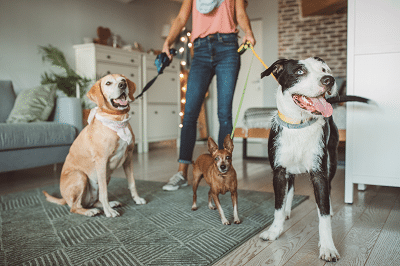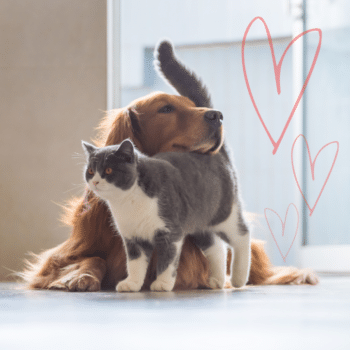A recent litter of hairless French Bulldogs bred in the UK has whipped up a flurry of media attention that is raising concerns around “extreme breeding”, in essence, breeding programs that focus on exaggerated conformational changes. Frenchies, and other designer flat-faced (brachycephalic) breeds like the Chinese Pug and English Bulldog, are initially adored for their cartoony cuteness. However, the cosmetic characteristics that give them their signature looks (wide heads, short bodies, and bulging eyes) are exactly those causing most of their health problems. As their popularity rises rapidly, so too does the financial cost of purchasing and caring for designer dogs, and the cost paid by the dogs themselves. Most owners develop loyalty to these breeds because of their fun and affectionate temperament – not necessarily their looks. If we can better understand the health problems that set our flat-faced buddies back, we can push for healthier breed standards to help them feel as good as they make us feel.
Many of the troubling health problems affecting popular brachycephalic breeds can be attributed to their compact skeletons (which is how the flat face and short tail are achieved) that are carrying otherwise “normal” amounts of skin and soft tissue. The skin and soft tissues are in fact excessive on their compact frame, leading to breathing difficulties, skin conditions, and eye problems. The design of their skeleton even affects their ability to breed naturally.
Breathing problems are well-known in brachycephalic breeds. The soft palate (the soft part of the roof of the mouth), is usually too long for the shape of their mouth and the excess tissue partially blocks the trachea (windpipe). Many brachycephalic dogs also have stenotic nares, meaning the nostrils are abnormally narrow with excess cartilage that blocks their airways. Furthermore, the tongue is usually too long to fit inside the shortened mouth without blocking the windpipe, which is why it is often hanging out to the side.
Skin folds can be very problematic as they chafe easily and give yeast and bacteria a perfect environment to cause skin infection or disease. Infections affecting the eyes, ears, and urinary tract can also occur due to excessive skin folds in those areas. These problems are exasperated by obesity, which is prevalent in these breeds that have difficulty breathing during exercise.
You can probably imagine by now how their compact skeletons give them those famous bulging eyes – the sockets are too shallow. In extreme cases, the eyelids aren’t adjusted to fully cover the eyes and may even turn inward on themselves (entropion). This causes discomfort and dryness in its mildest form but can often lead to painful corneal ulcers.
The high purchase price of extreme brachycephalic puppies is largely due to the difficulty and financial cost of breeding them. French Bulldogs, for example, have been anatomically conformed to such a degree that many stud males are unable to mount a female, therefore requiring artificial insemination. In females, their hips have become too narrow to allow for the natural delivery of puppies with disproportionately wide heads. In fact, more than 80% of females require a caesarian section for a successful delivery, so many breeders will proactively schedule the surgical procedure.
In addition to the high purchase price, the common health problems seen in these dogs require frequent and specialized veterinary care throughout their lives. The dogs themselves are paying the highest cost, however, with a compromised quality of life and shortened lifespan.
We CAN help these wonderful, well-natured breeds become healthier versions of themselves, generation after generation! Here are some of the ways you can advocate for their health and well-being:
- Purchase from reputable, licensed breeders who invest in top-of-the-line veterinary care and genetic testing to breed healthier puppies.
- As soon as you purchase your pup, sign up for pet insurance so the cost of veterinary care doesn’t become a barrier to getting help for your pup when he needs it.
- Take your pup to the vet for routine checkups to maintain good health and catch any problems early.
- Feed a high-quality, nutritionally balanced diet in appropriate portions to prevent obesity. (Your vet can help you with this, too!)
- Continue to advocate for your favorite breeds by sharing helpful information with others (you could even start with this article) and by supporting or donating to organizations dedicated to improving breed health and changing the “standards” by which they are bred.
LifeLearn News
Note: This article, written by LifeLearn Animal Health (LifeLearn Inc.) is licensed to this practice for the personal use of our clients. Any copying, printing or further distribution is prohibited without the express written permission of Lifelearn. Please note that the news information presented here is NOT a substitute for a proper consultation and/or clinical examination of your pet by a veterinarian.










